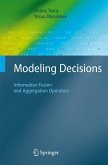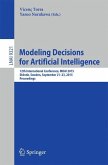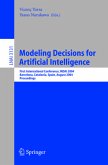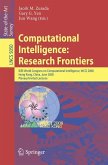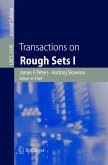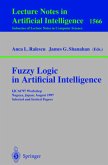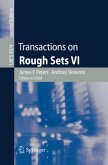Information fusion techniques and aggregation operators produce the most comprehensive, specific datum about an entity using data supplied from different sources, thus enabling us to reduce noise, increase accuracy, summarize and extract information, and make decisions. These techniques are applied in fields such as economics, biology and education, while in computer science they are particularly used in fields such as knowledge-based systems, robotics, and data mining.
This book covers the underlying science and application issues related to aggregation operators, focusing on tools used in practical applications that involve numerical information. Starting with detailed introductions to information fusion and integration, measurement and probability theory, fuzzy sets, and functional equations, the authors then cover the following topics in detail: synthesis of judgements, fuzzy measures, weighted means and fuzzy integrals, indices and evaluation methods, model selection, and parameter extraction. The methods are illustrated with representative examples throughout, and there are extensive bibliographies and reading suggestions.
The book is intended for graduate students, researchers, and practitioners such as engineers, computer scientists, statisticians and economists who use decision models and aggregation operators. The reader is assumed to have a nonspecialized background in mathematics.
This book covers the underlying science and application issues related to aggregation operators, focusing on tools used in practical applications that involve numerical information. Starting with detailed introductions to information fusion and integration, measurement and probability theory, fuzzy sets, and functional equations, the authors then cover the following topics in detail: synthesis of judgements, fuzzy measures, weighted means and fuzzy integrals, indices and evaluation methods, model selection, and parameter extraction. The methods are illustrated with representative examples throughout, and there are extensive bibliographies and reading suggestions.
The book is intended for graduate students, researchers, and practitioners such as engineers, computer scientists, statisticians and economists who use decision models and aggregation operators. The reader is assumed to have a nonspecialized background in mathematics.


